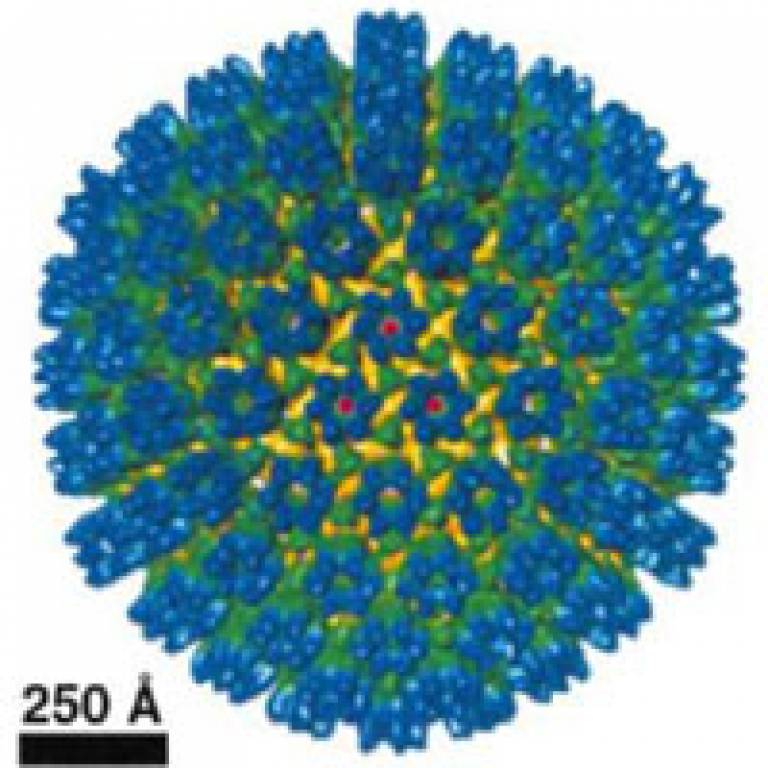UCL scientists discover 'traitor' human DNA helps viruses cause cancer
26 April 2010
Links:
 guardian.co.uk/science/2010/apr/25/cancer-causing-virus-study" target="_self">Coverage in The Guardian
guardian.co.uk/science/2010/apr/25/cancer-causing-virus-study" target="_self">Coverage in The Guardian
UCL scientists have discovered that stretches of human DNA act as a traitor to the body's defences by helping viruses infect people and trigger cancer-causing diseases.
The research, which was undertaken at the UCL Cancer Institute and funded by Cancer Research UK, and published in Nature Cell Biology today, revealed that viruses can exploit the body's DNA - dampening its antiviral immune response and allowing infection to take hold more easily.
The UCL Cancer Institute scientists showed that this happened with the Kaposi sarcoma herpesvirus which causes the cancer Kaposi Sarcoma, and also with the herpes simplex virus which causes cold sores.
Our immune system uses multiple ways to prevent or clear infection. In parallel, viruses have also evolved highly sophisticated counter-measures to escape from the human immune defence.
The team has discovered that viruses exploit tiny molecules derived from human DNA called microRNAs, to make cells more susceptible to viral infection. MicroRNAs are mostly found in parts of the human genome which do not generate proteins - initially thought to be 'junk DNA'.
Lead author Chris Boshoff, Director of the UCL Cancer Institute and Cancer Research UK's Professor of Cancer Medicine, said: "We are investigating microRNAs as future therapeutic targets, and targeting cellular microRNAs could be a potential way to prevent or treat cancer-causing infection from viruses."
Dr Dimitris Lagos, study author, based at the Cancer Research UK Viral Oncology laboratory, UCL Cancer Institute, said: "The viruses we tested have evolved with humans for millions of years and use a variety of biological tricks to establish life-long and mostly harmless infections. We discovered that it is likely that other viruses - which can cause diseases including cancer exploit the tiny molecules present in everyone's DNA - called microRNA - to turn cells into a viral 'hotel' which they can check into - to cause infection - and spread."
Image above: Kaposi sarcoma herpesvirus
UCL context
The UCL Cancer Institute was established in 2007. It aims to:
- carry out internationally recognised cancer research and promote the translation of basic research discoveries into new strategies to prevent, diagnose, monitor and cure human cancer
- train a new generation of cancer researchers and cancer clinician scientists
- promote links with partner teaching hospitals, and exploit the wealth of biological material for genetic, genomic and other studies
- influence the development and implementation of a UCL-wide policy on cancer research and to consolidate cancer sciences within a single entity at UCL
- engage and educate the local community in Central London in aspects of cancer research, prevention and care.
 Close
Close

